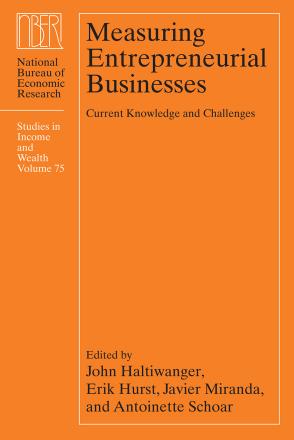Wealth, Tastes, and Entrepreneurial Choice

The non-pecuniary benefits of managing a small business are a first order consideration for many nascent entrepreneurs, yet the preference for business ownership is mostly ignored in models of entrepreneurship and occupational choice. In this paper, we study a population with varying entrepreneurial tastes and wealth in a simple general equilibrium model of occupational choice. This choice yields several important results: (1) entrepreneurship can be thought of as a normal good, generating wealth effects independent of any financing constraints, (2) non-pecuniary entrepreneurs select into small scale firms, (3) subsidies designed to stimulate more business entry can have regressive distributional effects. Despite abstracting from other important considerations such as risk, financing constraints, and innovation, we show that non-pecuniary compensation is particularly relevant in discussions of small businesses.
-
Copy CitationErik G. Hurst and Benjamin W. Pugsley, Measuring Entrepreneurial Businesses: Current Knowledge and Challenges (University of Chicago Press, 2016), chap. 3, https://www.nber.org/books-and-chapters/measuring-entrepreneurial-businesses-current-knowledge-and-challenges/wealth-tastes-and-entrepreneurial-choice.Download Citation


